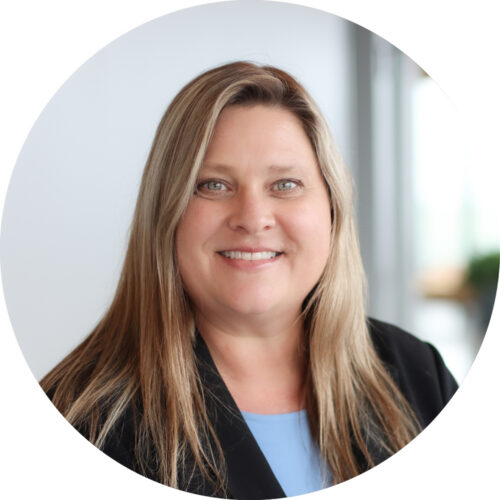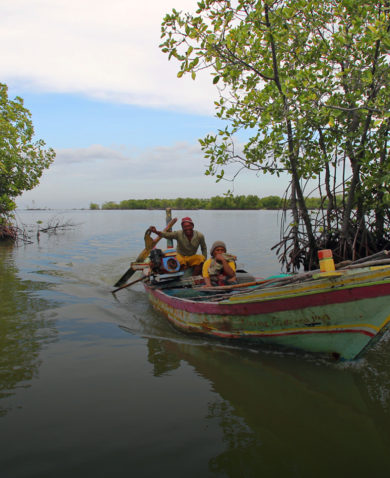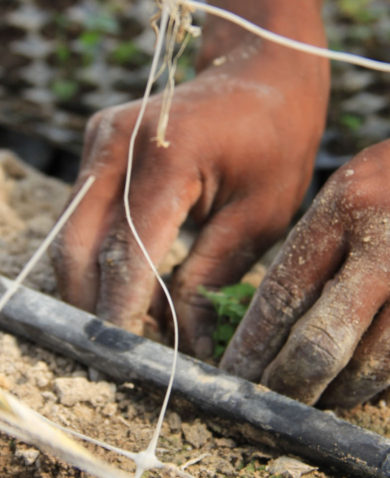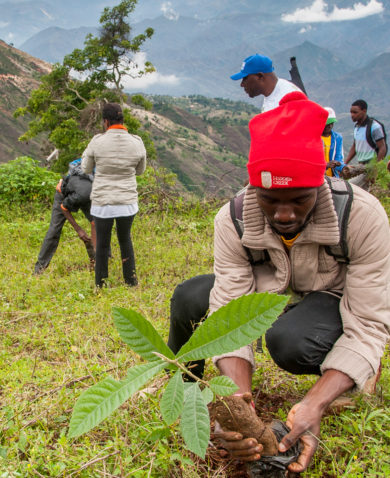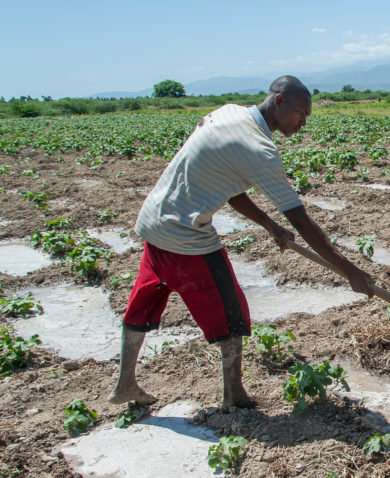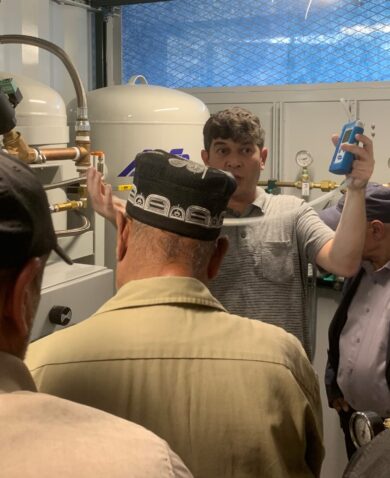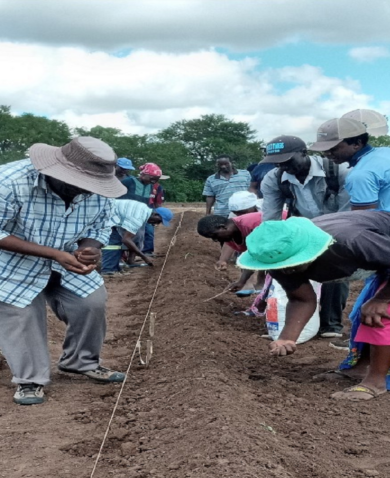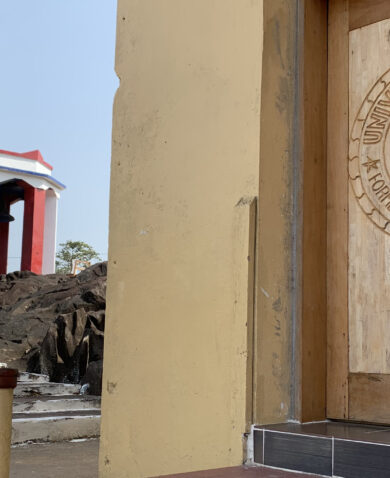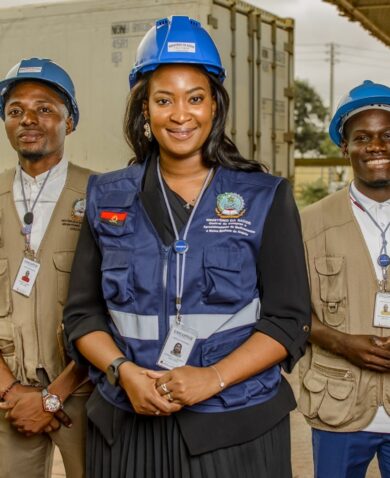
A Conversation with Anna Slother on Staff Care and Wellness in Conflict and Crisis
June 8, 2022 | 5 Minute ReadLet's have a conversation with Chemonics' Executive Vice President Anna Slother about leading crisis responses in development, supporting and learning from colleagues in Ukraine and worldwide, and fostering a culture of staff wellness.
As the world and development community continue to face increasingly complex humanitarian and conflict crises, most recently Russia’s invasion of Ukraine, Chemonics’ Executive Vice President Anna Slother discusses the importance of staff care globally. She offers insights from her experience leading crisis responses, shares lessons learned from resilient Ukrainian, Afghan, and other colleagues worldwide, and reflects on how Chemonics and the development community can prioritize staff wellness, no matter the circumstances.
1. Russia’s war in Ukraine has created a devastating humanitarian crisis, and it’s one of several that have affected Chemonics’ global staff in recent years. While we can’t predict when or how events unfold, how does Chemonics ensure its staff and projects have what they need to navigate crises when they occur?
It’s devastating how quickly normal life can change overnight for families in any circumstance. We’ve seen it in Afghanistan, Syria, Myanmar, Ethiopia, and of course Ukraine. And we’ve seen it here in the United States and in the United Kingdom, especially in the last two years. Preparation is key.
Chemonics has always been hyper-focused on having emergency action plans in place – I have no doubt that has caused frustration over the years for teams who may not have considered them as a high priority. So, for Ukraine, we started talking to staff in November and December. It felt surreal because no one knew what would happen; no one believed the worst would happen. Initially, we provided general guidance: Make sure you have emergency supplies. Make sure you have plan for relocation. As the situation escalated, the guidance become more specific and directive.
In hindsight, we had the crucial plans in place. One of our staff members told us that because of our advice she’d gotten a passport for her son because we advised staff to make sure their kids all had passports. They were able to leave the country when the war started. In fact, double-checking that all family members had passports was a lesson we learned from Afghanistan when we had so many people who didn’t have the documents they needed to leave because everything happened so fast.
2. What needs have you and the Chemonics Crisis Response Team identified in Ukraine? How have you sought to meet those needs for Ukrainian colleagues, families, and their communities?
The first priority is for staff to focus on their own and their loved ones’ safety. If they’re leaving, how do we get them financial resources for shelter and food once they get wherever they’re going? And we keep checking in, asking how we can support. For example, a few weeks ago I spoke with Ukrainian colleagues, and they said, “I evacuated in winter. Now it’s summer, and my kids and I don’t have any warm weather clothes.” Others said, “My kids were babies when we left, and they grow fast, and we don’t have clothes for them.” That’s a lightbulb moment. We issued an emergency stipend at the beginning, but now we need to revisit that, offer it again, and ensure people are equipped to meet basic needs.
Then, of course, there are psychosocial supports. In Ukraine, the need was so immediate and so profound overnight. And the needs were so diverse. There were those who stayed in country and those who relocated. Those who fled the country were primarily women and children, and they’ve left husbands, fathers, brothers, and uncles behind to fight. We quickly sourced education resources in English, Ukrainian, and Russian for these families whose children were now suddenly out of school and their homes. We also worked with our wellness benefits provider, Konterra, to offer mental health services. We found professionals who speak Ukrainian or Russian and who have the relevant skills to address those different populations.
Yet, the mental health professionals were overwhelmed in trying to respond. Many of those professionals were also Ukrainian, and they’re also facing a crisis. They’re finding new shelter. They’re evacuating to Poland or elsewhere, yet they’re trying to provide support for their fellow citizens. It’s overwhelming to think about and yet inspiring that they’ve been willing to do it.
3. What has been the response from staff and their families in Ukraine to Chemonics’ efforts to support their wellbeing? Has anything surprised you? Have there been any lessons to apply to other crises or our work in general?
I can’t tell you how much I admire all of our Ukrainian colleagues. In spite of everything, they’re still working somehow. More than 80% of our staff have moved internally in Ukraine or evacuated the country. Many of our staff are women with children. Some of them are caring for elderly parents or other family members. Many have had their homes destroyed. They’re continuing to work not only for income, but also because our development work is important to support efforts across Ukraine in this critical time.
For example, one of our projects launched a mobile matchmaking platform so that Ukrainian farmers can input the data into an app, get quickly processed by the bank, and receive loans so they can continue planting their crops and running their farms despite the war. Our team there has been able to move $1.6 million to 65 small farmers. Another communications project, which works with Ukraine’s Ministry of Foreign Affairs and the President’s Office, produced a thank you video for the countries giving support to Ukraine. Just saying thank you on behalf of Ukrainian people. So, it’s truly meaningful for people to be able to keep contributing and coming up with ideas. And it’s inspiring to watch.
Another thing that has surprised me is that our Ukrainian colleagues have been very direct about what they need, what they find helpful, and what they don’t. For example, at Chemonics, we try to be inclusive in our communications. We send out various opportunities, like invites to virtual wellness activities, to all staff globally. But our staff in Ukraine said, “Please don’t send me those emails. Please don’t invite me to virtual yoga right now.” They’re deep in a crisis, and those types of communications aren’t useful or relevant to them in that moment. While we had good intentions with our all-staff emails, we had to pivot to honor the real contextual differences and struggles that our staff in Ukraine—and globally—were in at that time. I am so grateful people were so direct with their feedback. We can better support them because of it.
So, in terms of lessons, we’re learning to be more adaptive to the culture, environment, and crisis at hand. We must routinely refresh our tools and approaches to allow for more and more agility. And leaders shouldn’t pretend to have all the answers. From the start of any crisis—and throughout it—we have to ask, what will be most beneficial to you at this time? We actually did that during COVID, for example, when we sent surveys to staff for their anonymous feedback about Chemonics’ response and what staff needed. That allowed us check in and shift how we supported and responded to our workforce.
4. With the COVD-19 pandemic, global political unrest and conflict (Afghanistan, Ukraine, US, etc.), and isolation, the past two years have been challenging to say the least. What have you and other leaders learned about tending to staff care and wellbeing, no matter where they live and work?
First, I’ve learned that people want to know what their employer can and cannot do. We need to lay out expectations for our staff, because as much as we might want to, we simply can’t solve everything for everyone all the time.
Next, as a company, we’ve leaned into the concept of meeting people where they are and encouraging them to work where they perform best. We’ve pivoted to this hybrid culture — in-person and virtual —and I hope that will help with staff wellness and balance. It won’t solve everything, but at least we’re moving the needle a bit.
Most importantly, as human beings, we are all living lives that are dynamic. We have challenges, celebrations, health scares, mental health struggles. We provide care for parents or children, and we participate in our local communities. Wellness needs to be prioritized not just during a crisis. By cultivating leaders who create spaces where staff can be honest about their circumstances and know they’ll be met with support, we can build a company culture with staff wellness at its foundation.
Banner photo caption: A stock image of burning candle in human hands in darkness.
Posts on the blog represent the views of the authors and do not necessarily represent the views of Chemonics.

